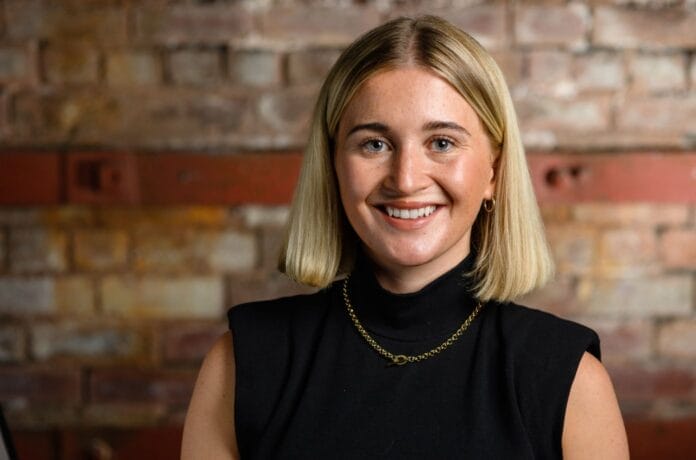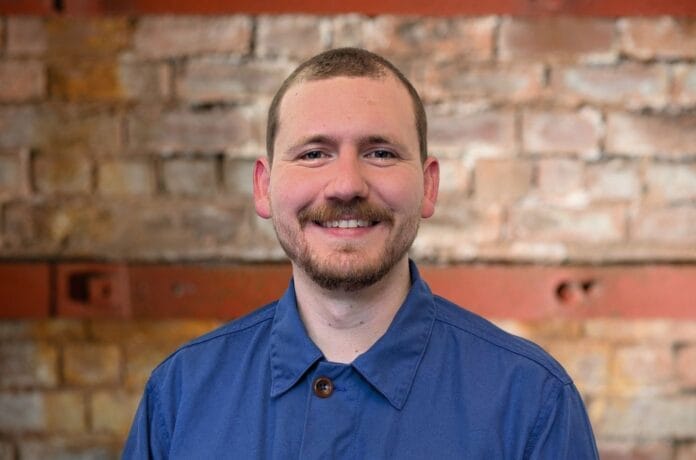
We are passionate about nurturing the next generation of leaders—those who will shape not only our projects but the future of the architectural profession. That’s why the RIBA Future Leaders initiative has been such a valuable experience for our emerging talent. The programme offered an inspiring platform to reflect, connect, and grow, and our future leaders—Kaori Miyahara, Sally O’Donnell, James Hughes, Andrew Frame, and Andrew Abraham—have each taken away unique insights to guide their leadership journeys.

Kaori Miyahara, Senior Chartered Landscape Architect, Cardiff Studio
For Kaori, the sessions underscored the importance of leading from the inside out. She found that true leadership begins with self-awareness, self-management, and self-acceptance—qualities that allow us to better understand our own strengths and limitations. This inward reflection becomes a foundation for leading others more effectively.
Kaori also explored the balance between “push” and “pull” leadership strategies. While her natural style leans toward a gentler, pull-based approach, she reflected on the importance of assertiveness in guiding teams forward. Striking this balance is key to building cohesive and empowered teams.
One of her most powerful takeaways was the value of 360-degree feedback. Hearing perspectives from across the team—not just senior voices—provided a fuller picture of her leadership style and its impact. Coupled with a hands-on workshop on active listening, Kaori left the programme with tangible tools to enhance team communication and empathy.

Sally O’Donnell, Architect, London Studio
For Sally, the sessions offered a moment to pause and zoom out from the day-to-day pressures of practice. Hearing from Lucy Tilley, CEO of Adjaye Associates, was a turning point—prompting her to challenge assumptions about what leadership looks like in architecture. Lucy’s story of resilience and being underestimated resonated deeply, encouraging Sally to re-evaluate her own definition of what makes a leader.
The programme also offered Sally the opportunity to connect with peers from diverse backgrounds and practices. These interactions sparked new conversations and perspectives that highlighted the shared challenges—and opportunities—facing the next generation of architectural leaders.
Ultimately, Sally found herself reflecting on the bigger picture: the role leadership plays in shaping practice culture, driving long-term strategy, and creating inclusive, supportive environments. The tools and techniques she gained—particularly around communication, feedback, and active listening—will be invaluable in helping her contribute to this vision.

James Hughes, Project Leader, Sheffield Studio
James found the seminar both insightful and practical, especially when it came to understanding the power of adapting leadership styles. A standout moment for him was a roleplay exercise led by Debrah and the team, which illustrated just how transformative it can be when a leader uses the right language, tone, and approach to connect with others.
For James, the biggest lesson was the shift from the golden rule—“treat others how you want to be treated”—to a more empathetic model: “treat others how they want to be treated.” This mindset encourages leaders to recognise the unique personalities and needs within their teams, and to respond with flexibility and compassion.
He also reflected on the idea that leadership isn’t about fitting into a specific mould—introvert or extrovert—but about finding a style that suits the individual and the context. This fluid, adaptable approach to leadership is something he’s excited to carry forward.

Andrew Frame, Architect, Glasgow Studio
Andrew found the Future Leaders course to be an incredibly rewarding experience, offering both deep insights into leadership behaviours and the opportunity to engage meaningfully with peers. For him, one of the most powerful aspects of the programme was recognising how small behaviours can have a significant impact on those around you as a leader.
Andrew’s key takeaways included the idea that leadership is rooted in self-awareness and building relationships. By truly understanding oneself, it becomes easier to play to personal strengths and adapt leadership styles to different situations. He also highlighted the vital importance of listening—not just to reply, but to understand—as a hallmark of effective leadership.
Perhaps Andrew’s biggest personal learning outcome was the value of self-reflection: taking the time to think about what kind of leader he wants to become, and, just as importantly, understanding why that leadership identity matters to him.

Andrew Abraham, Senior Architect, Belfast Studio
For Senior Architect Andrew Abraham, the RIBA Future Leaders programme offered a powerful reminder that leadership within architecture is neither fixed nor one-dimensional. He was particularly drawn to the emphasis on self-reflection and seeking feedback as essential tools for better understanding and refining his leadership values and motivations.
What stood out most to Andrew was the recognition that effective leadership is dynamic—it’s about fostering not just productivity, but also wellbeing and team cohesion. He appreciated how the programme also connected leadership with the broader business context, offering a clearer understanding of studio operations and the importance of embedding values such as collaboration and respect. These insights reinforced how strong leadership can directly influence both internal team dynamics and client relationships.
Looking Ahead
We believe that leadership is not defined by title or authority but by empathy, awareness and the willingness to grow. The RIBA Future Leaders initiative has reinforced the importance of these qualities, equipping our future with practical skills and a deeper sense of purpose as they continue in their professional journeys.
We are immensely proud of Kaori, Sally, James, Andrew Frame, and Andrew Abraham for embracing this opportunity with open minds and reflective spirits. Their insights not only strengthen their own leadership potential but also help foster a culture of thoughtful, resilient leadership within HLM and the wider architectural community.


